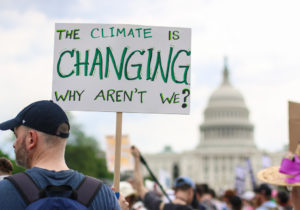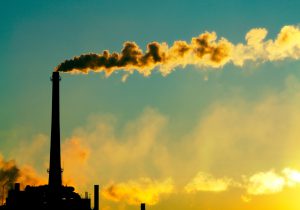
Radical new research launched by Inno Energy, Europe’s sustainable energy engine supported by the EIT, reveals that EU citizens are set to pocket €183bn by adopting innovative smog-reduction technologies over the next seven years.
The report, entitled Clean Air Challenge and produced in conjunction with Deloitte, comes in response to the European Commission’s findings that smog may account for as many as 1 in every 10 premature deaths in the world, and will cost the EU an astonishing €475bn between 2018 and 2025. That represents 2.9 per cent of average annual GDP.
Launched at an exclusive event with leading politicians and policymakers in Brussels, the report takes an in-depth look at the issue of air quality across the continent – highlighting concrete, innovative transport and heating solutions to protect European citizens from pollution and its impact on health.
Speaking at the event, Jerzy Buzek, Chair of the European Parliament Industry, Research and Energy Committee and former President of the European Parliament, says: “Smog is one of the most critical public health concerns of the century, accounting for as many as one in every ten premature deaths in the world – and over 400,000 premature deaths in Europe every year.
“The Clean Air Challenge report offers practical solutions that could help improve our citizens’ health and that could benefit the whole society. We must start implementing it throughout the EU without any delay.”
Diego Pavia, CEO at InnoEnergy, says: “It is shocking that in this day and age, smog should still pose such a risk to the health of our communities. Putting the huge economic cost to one side, there is no reason, with the technology that is becoming available to us, that citizens should not be able to breathe clean air.
“At InnoEnergy, we like to tackle problems head-on and this is no exception. Not only are we making available further research to better understand the issue and identify practical solutions, but we are also actively seeking opportunities to offer investment and wider support to ambitious businesses with passion and a plan to put a stop to smog.”
Irena Pichola, Partner, Leader of Sustainability Consulting Central Europe at Deloitte, says: “We must not forget that poor air quality affects people differently. For instance, there are huge regional variances in the causes and effects of smog, with most Western European smog coming from transportation, while heating produces the most pollution in the East.
“But, as mentioned in the report, wherever you look, the young are among the most affected. With an increase of 100 units of PM comes a reduction of average life expectancy of around 2.3 years among children by age 5. We are proud to work with InnoEnergy to look for solutions to an issue of such profound importance.”
The Polygen Project in Poland generates synthetic natural gas, electricity and heat from locally-sourced waste sludge, solid urban waste and biomass. The energy produced is supplied to local homes and businesses creating a circular economy[1].
[1] http://www.innoenergy.com/smog-reduction-could-save-european-citizens-e183bn-by-2025-innoenergy-and-deloitte-find-2/




